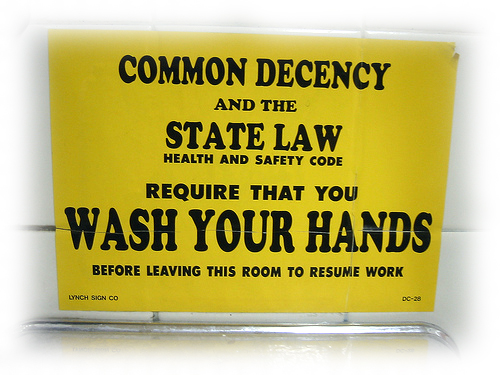Quotations
If an error is possible, someone will make it. The designer must assume that all possible errors will occur and design so as to minimize the chance of the error in the first place, or its effects once it gets made. Errors should be easy to detect, they should have minimal consequences, and, if possible, their effects should be reversible.
— Don Norman, The Design of Everyday Things (2013)
Tags
Posts Tagged ‘public goods’
Even the commode is not immune from economic activity. I find two examples especially interesting.
The law of demand states that as something becomes more expensive, people choose to consume less of it. Electronic towel dispensers are a perfect example of this concept involving non-monetary prices. Pulling our own paper towels is no great task, so why do these machines exist? I suggest towels from automated  machines purposely cost more to users by requiring more time per sheet. Because of the higher price, the restroom operator knows that fewer towels will be taken per wash. As fewer towels are consumed, less restocking occurs, and eventually the room operates at a lower cost.
machines purposely cost more to users by requiring more time per sheet. Because of the higher price, the restroom operator knows that fewer towels will be taken per wash. As fewer towels are consumed, less restocking occurs, and eventually the room operates at a lower cost.
Similarly, bathroom attendants make hand-washing more costly. If you choose to tip bathroom attendants, handwashing becomes more expensive. Attendants can also make those who do not tip feel uncomfortable or annoyed, thereby raising their costs. For both groups, handwashing costs more, so people choose to have less of it. Economic reasoning allows us to see the public health implications associated with letting an attendant set up shop.
There is another interesting story here. To see it, you need to note that handwashing and trips to the lavatory are complements (items consumed together). Theory states that as the price of a complement good (handwashing) increases, people will demand less of the original good (stops at the loo). The punch line is that washroom attendants drive people to use bathrooms less frequently, which is rough news for our poor bladders.
